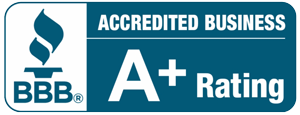How to Navigate and Thrive During Economic Slowdowns
Small businesses navigating economic uncertainty benefit from strategic planning and adaptive methods. Resilience often stems from prioritizing financial discipline, optimizing daily operations, and fostering strong customer relationships. Proactive measures allow business owners to maintain stability while uncovering avenues for growth. Embracing change and exploring creative solutions can transform challenges into opportunities. Building a flexible foundation ensures businesses stay competitive in any climate.
Boost Customer Loyalty to Weather Economic Downturns
Building strong customer loyalty is a powerful way to ensure your business remains resilient during tough economic times. Implementing a loyalty program that offers rewards like points, discounts, or exclusive perks encourages repeat business and increases customer lifetime value. Retaining existing customers is significantly more cost-effective than acquiring new ones, making loyalty programs a financially savvy choice. Additionally, these programs provide insights into customer preferences, allowing you to tailor your marketing efforts effectively. In a competitive market, a well-designed loyalty program not only differentiates your brand but also fosters a sense of appreciation.
Streamline Your Business Records for Financial Resilience
Keeping your business and financial records meticulously organized is essential for maintaining financial resilience. By adopting a digital-first approach, you can reduce inefficiencies and protect your documents from being misplaced or improperly accessed. Saving your documents as PDFs ensures consistent formatting across devices, making them easy to share and present. If you need to combine PDF documents for comprehensive reporting, using a PDF merging tool can streamline this process. This strategic organization not only enhances operational efficiency but also positions your business to swiftly respond to financial opportunities or challenges.
Slash Utility Costs with Smart Energy Solutions
Cutting utility costs is a strategic way to enhance financial stability during tough economic periods. Switching to energy-efficient lighting significantly reduces power consumption, translating to notable savings over time. Upgrading climate control systems with smart technologies helps minimize energy waste while maintaining comfort. Encouraging staff to adopt energy-saving habits, such as shutting down equipment when not in use, reinforces cost-effective practices. Integrating these changes into daily operations not only trims expenses but also supports environmental sustainability.
Establishing a Financial Safety Net with a Line of Credit
Preparing for financial uncertainties by establishing a line of credit ahead of time can provide essential support when challenges arise. Taking action before the funds are urgently required often results in better lending conditions and flexibility. It ensures steady cash flow management and addresses liquidity concerns during periods of fluctuating revenue. Seeking guidance from a financial expert can refine this plan to suit specific objectives and operational demands. Aligning such strategies with long-term goals strengthens a business’s ability to navigate unpredictable circumstances effectively.
The Importance of Cybersecurity Investment
In today’s digital age, investing in cybersecurity is essential for protecting your business’s digital assets and customer data. Cyber attacks, such as ransomware and phishing, pose significant threats to businesses of all sizes. Implementing robust security measures like strong passwords, multi-factor authentication, and regular software updates can significantly reduce the risk of data breaches. Utilizing advanced security solutions that offer encrypted remote access and threat detection further protects your business from potential cyber threats. Prioritizing cybersecurity investments is a strategic move to ensure the longevity and trustworthiness of your business.
Uncovering New Market Opportunities
Economic challenges often create fresh opportunities for businesses willing to adapt. As consumer needs evolve, market gaps emerge, offering potential for innovative solutions. A shift toward affordability or essentials can redefine demand, opening doors for tailored offerings. Staying attuned to these changes and adjusting strategies accordingly allows businesses to remain competitive. Such responsiveness fosters resilience and can strengthen a company’s position in uncertain times.
Empower Your Team with Financial Literacy
Incorporating financial literacy training for your employees can help them better understand economic fluctuations and manage their finances during a recession. Many individuals lack the necessary skills to navigate economic downturns effectively. By educating your team on essential financial concepts such as budgeting, saving, and risk management, you empower them to make informed decisions that can alleviate personal financial stress. This not only enhances their well-being but also boosts morale and productivity, as employees who feel financially secure are more focused and engaged at work. Investing in your employees’ financial education creates a more resilient workforce.
Small businesses thrive when they adopt strategies that prioritize long-term stability and adaptability. Strengthening internal processes and maintaining strong relationships with customers help create a business model prepared for challenges. Focusing on areas like digital security and operational efficiency can provide a competitive edge. Proactive adjustments to market changes ensure businesses remain agile in shifting environments. Consistent attention to growth opportunities reinforces their position in the market.
Discover the vibrant business community of Wellington by visiting the Wellington Area Chamber of Commerce and explore how you can be part of our exciting events!




